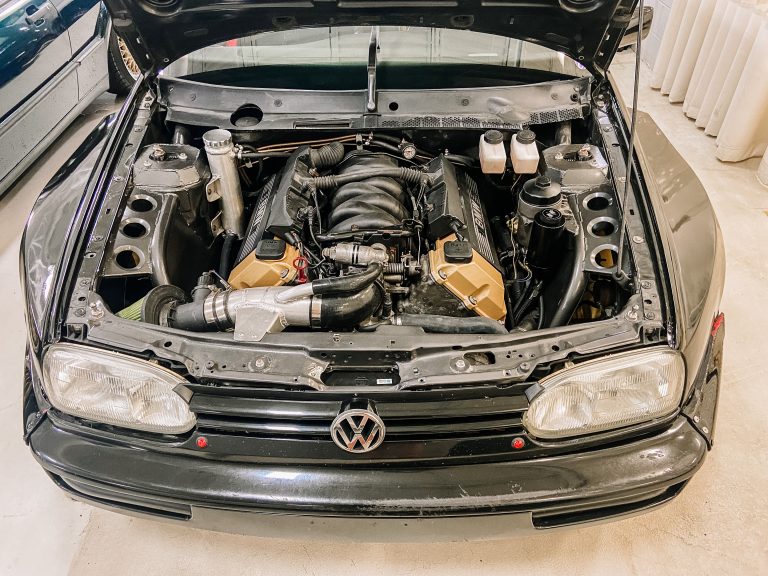BMW X3 is a luxury compact SUV known for its performance and reliability. Like any other vehicle, it requires proper care and maintenance to ensure its longevity and optimal performance. One crucial aspect of maintaining your BMW X3 is using the right engine coolant. In this comprehensive guide, we will discuss everything you need to know about engine coolant for your BMW X3.

Credit: www.amazon.com
What is Engine Coolant?
Engine coolant, also known as antifreeze, is a liquid substance used to regulate the temperature of the engine and prevent it from overheating or freezing. It circulates through the engine and absorbs the excess heat generated during operation, then releases it through the radiator.
Using the correct type and quality of coolant is crucial for the overall health of your BMW X3’s engine. Let’s explore the factors you should consider when choosing an engine coolant for your BMW X3:
Type Of Coolant
BMW X3 typically requires ethylene glycol-based coolant, which is compatible with the engine’s aluminum cylinder heads. Always check your vehicle’s user manual to determine the specific type of coolant recommended by the manufacturer.
Approved Coolant Brands
Using approved coolant brands is essential to maintain the performance and longevity of your BMW X3. BMW recommends using their own brand of coolant or other high-quality coolants that meet BMW specifications. Some popular approved brands include BMW Coolant Antifreeze, Genuine BMW Antifreeze/Coolant, and Zerex G-05.
Coolant Mixture Ratio
The coolant mixture ratio is the proportion of coolant to water in the system. BMW recommends a 50:50 mixture of coolant and distilled water for optimal performance. This ratio provides adequate freeze protection in cold climates and prevents overheating in hot conditions.
Change Interval
Regularly changing the engine coolant is essential to maintain its effectiveness and prevent engine damage. BMW recommends replacing the coolant every 2-3 years or approximately every 30,000-50,000 miles, depending on the driving conditions and climate.
How to Check and Add Coolant to your BMW X3
- Park your BMW X3 on a level surface and allow the engine to cool down.
- Locate the coolant reservoir, which is usually translucent and labeled with “Engine Coolant” or “Antifreeze”.
- Check the coolant level by inspecting the markings on the side of the reservoir. The coolant level should be between the minimum and maximum marks.
- If the coolant level is low, carefully remove the reservoir cap and add a mixture of coolant and distilled water based on the manufacturer’s recommendations.
- Replace the reservoir cap and ensure it is tightened securely.
It is crucial to follow the recommended procedures and safety precautions outlined in your BMW X3’s user manual when checking or adding coolant.

Credit: www.columbusluxurycars.com
Frequently Asked Questions For Engine Coolant For Bmw X3: Ultimate Guide To Premium Performance
What Type Of Coolant Does Bmw X3 Use?
BMW X3 uses a specific type of coolant known as BMW Coolant Anti-Freeze/Summer Coolant. It is important to use the recommended coolant for optimal performance and protection of the engine.
How Often Should I Check My Bmw X3’s Engine Coolant?
Regularly check your BMW X3’s engine coolant level every 6 months or around 10,000 miles to ensure it is within the acceptable range for proper cooling and engine performance.
Can I Mix Different Brands Of Engine Coolant In My Bmw X3?
It is not recommended to mix different brands of engine coolant in your BMW X3. Mixing coolant brands can result in potential chemical reactions that may damage your vehicle’s cooling system. Stick to the recommended coolant for your specific BMW model.
How Do I Properly Fill My Bmw X3’s Engine Coolant?
To properly fill your BMW X3’s engine coolant, first make sure the engine is cool. Locate the coolant reservoir, remove the cap, and fill it with the recommended coolant until it reaches the maximum fill line. Be cautious not to overfill.
Conclusion
Proper engine coolant maintenance is vital for preserving the performance and longevity of your BMW X3. Using the correct type of coolant, following the recommended coolant mixture ratio, and adhering to the specified change intervals will help ensure that your BMW X3’s engine operates at its best.
Remember to always consult your BMW X3’s user manual for specific recommendations and guidelines regarding engine coolant. If you are unsure or prefer professional assistance, consult a certified BMW technician who can ensure your vehicle receives the appropriate coolant and maintenance.






